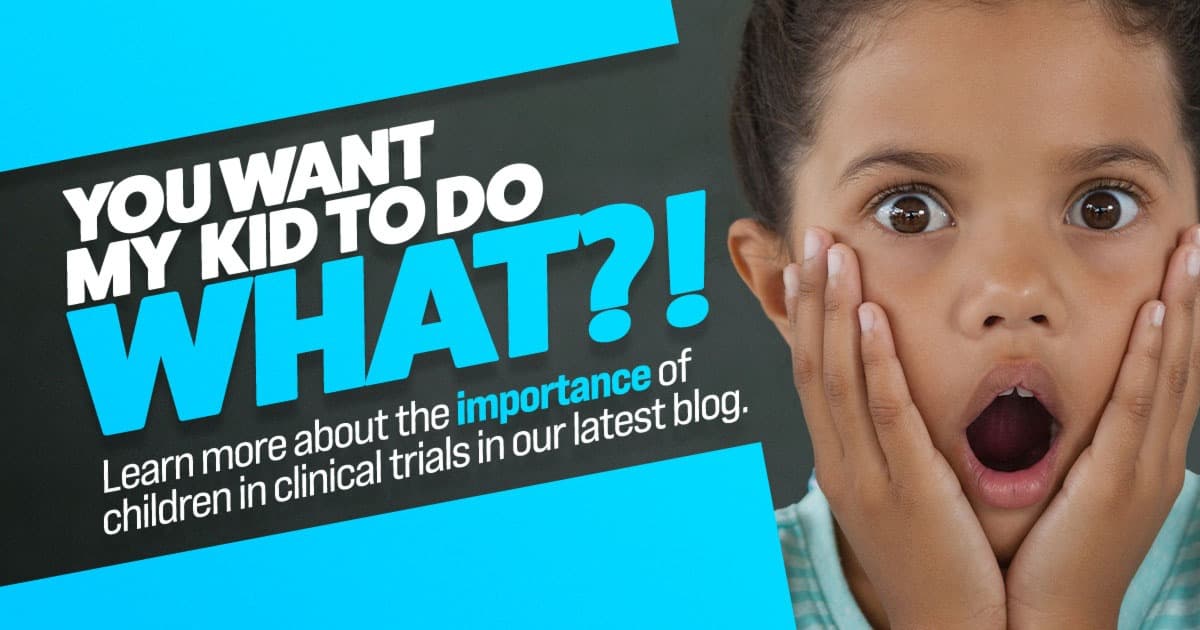A few months back, my niece and nephew participated in an eczema study for children. Before considering their participation, my sister-in-law called me one night for advice. She knew I had a research background. I gave her facts, working hard not to push. I also know the great lengths they go through to keep every participant safe. COVID-19 vaccine trials are beginning for children, I want others to understand why it’s vital for kids to participate in research.
Fact: Kids Aren’t Smaller Versions of Adults
Clinical research studies evaluate potential treatment options’ effectiveness and safety as they interact with or in the human body. As adults, our size, age, gender, and brain maturity level play an important role in responding to therapies. Naturally, an adult would have a higher dosage of a medication, and a child a lower one. Kids have smaller blood pressure cuffs and benefit more from play therapy. But how do we know this?

While some answers may be obvious, child-specific therapies are driven by children participating in research. When a child joins a study, researchers gather data that determine various things. For example, age-appropriate dosage, frequency, and delivery method. Without child-specific data, treatments are ad hocked from adult data, increasing the risk of side effects and overdosing.
There’s Never a “Wrong” Reason to Participate in Research
There are many reasons a family decides to include their child in a research study. Some want to change the future of genetic conditions that run their families. Others are dealing with diseases affecting only children without any available treatment options. But participating isn’t all about gaining access to potentially life-saving therapies when there are no options left. Though this may be the case for some participants, most appreciate some of the other responding to therapies such as:
- Helping to provide information that will benefit children in the future.
- Your child may receive closer monitoring not associated with regular care.
- You and your child can learn more about their condition, which allows better self-care.
- Some studies may offer reimbursements for time and travel or other incentives.
Every Commitment Advances Medicine
One realization that resounds in my passion for research is that every person who participates helps advance medicine. It doesn’t matter if you received the study therapy or not. It doesn’t matter if your commitment lasted ten days or ten months. Your participation data goes into advancing medicine. As a mother, I am acutely aware of the instinct embedded in our DNA to protect our children, but it’s important to know that every possible step is being taken to ensure your child’s safety.

Being a clinical research volunteer may not be an option for every family, but for those considering it, knowing the facts will help make the decision right for your family. Participation is 100% voluntary and can be stopped at any time. The informed consent process also is mandated by law to occur before any person can join a trial. It covers the study purpose, potential benefits, and risks, and more so you have everything you need to make an informed decision.
COVID-19 vaccine trials for children are enrolling NOW. To learn more about options in your area, visit our website.
Reference:

